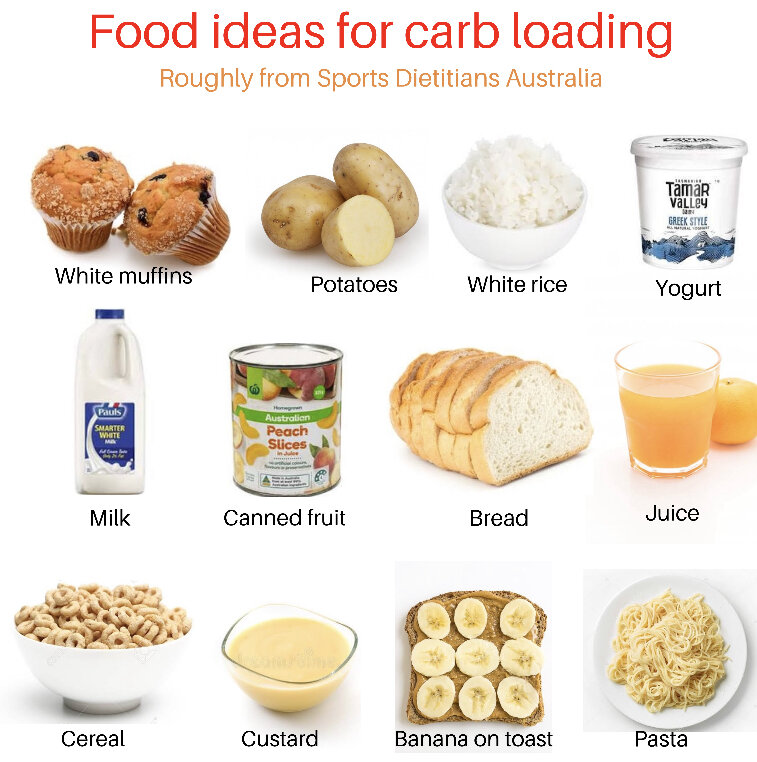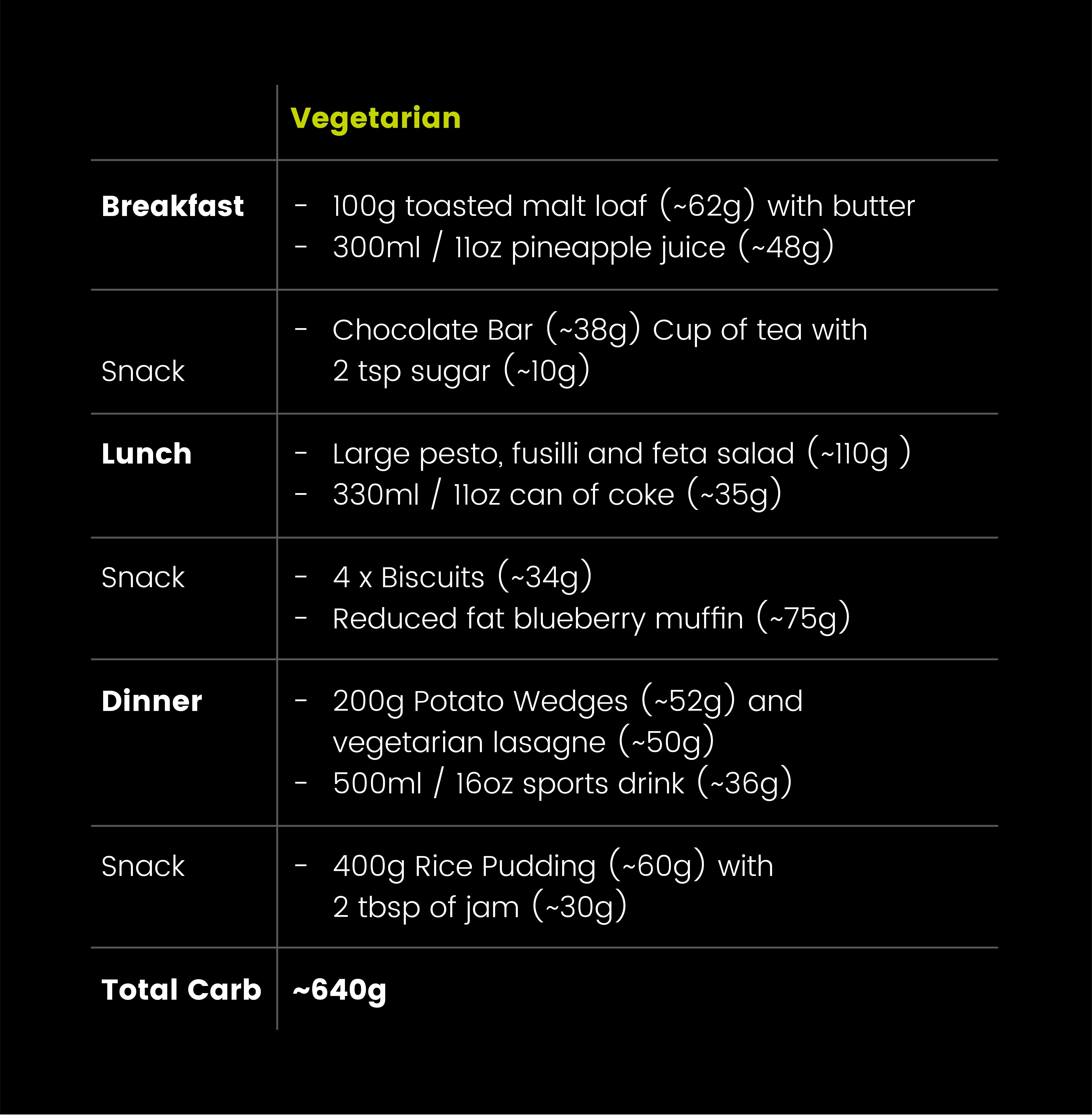

Carb-loading strategies for sports -
Carb loading is a tried and tested technique for fueling endurance events and workouts. If you want to perform at your personal best, take the time to eat properly and load up on carbohydrates.
Nutrition and fitness go hand-in-hand, and being able to provide clients with diet and fueling advice will set you apart from other trainers.
Want to help runners specifically? Become an ISSA Running Coach! In this course, you will learn training, injury prevention, motivation, and recovery strategies. As a Running Coach, you can help anyone from an endurance athlete to a casual runner prepare for and achieve their goals, whatever they may be.
By becoming an ISSA Nutritionist, you'll learn the foundations of how food fuels the body, plus step by step methods for implementing a healthy eating plan into clients' lifestyles.
Jeukendrup A. Nutrition for endurance sports: marathon, triathlon, and road cycling. Journal of Sports Sciences , 29 Suppl 1 , S91—S Wilson, P. Dietary tendencies as predictors of marathon time in novice marathoners. International Journal of Sport Nutrition and Exercise Metabolism , 23 2 , — All Categories Anatomy Audio Blogs Behavior Change Business More.
BY: ISSA DATE: What is Carb Loading? FREE eBook! Learn How to Properly Train and Build Perfect Glutes! The Benefits of Carbohydrate Loading The primary benefit of carb loading is avoiding the wall.
Is Carb Loading Before a Race Always Necessary? Definitely Carb Load for Endurance Exercise and Events Although the practice is most often associated with running, you can benefit from carbo loading before any endurance event.
How to Carb Load Correctly The image most people have of carb loading is a big bowl of spaghetti the night before a race. Learn from the bad experiences of other runners and avoid these common pitfalls: The spaghetti dinner.
Featured Course. First Name. Be sure to take a look at the following article on drinking fluids. Many endurance athletes eat only carbs and totally avoid protein-rich foods the days before their event.
BAD IDEA. Your body needs protein on a daily basis. Hence, you can and should eat a small serving of low-fat proteins such as poached eggs, yogurt, turkey, or chicken as the accompaniment to most meals not the main focus , or plant proteins such as beans and lentils as tolerated.
Learn more about protein needs and the athlete by clicking the following link. PROTEIN: The Pros, Cons, and Confusion. Carb-loading is just part of the fueling plan. What you eat on the day of the event is critically important and helps to spare your limited muscle glycogen stores.
So fuel yourself wisely both BEFORE AND DURING the event—and hopefully you will enjoy miles of smiles! When carbo-loading, you want to consume about 3 to 5 grams carbohydrates per pound of body weight. You can find carbohydrate info on food labels and www.
If you have any concerns or questions about your nutritional needs, seek the consultation of a local sports nutritionist for appropriate care. Nancy Clark, MS, RD, CSSD is Board Certified as a Specialist in Sports Dietetics. She counsels casual and competitive athletes in her private practice at Healthworks, the premier fitness center in Chestnut Hill MA Her bestselling Sports Nutrition Guidebook and food guides for new runners, marathoners, soccer players and cyclists are available at www.
Carbo-loading: Tips for Endurance Athletes By Terry Zeigler, EdD, ATC Does carbo-loading mean stuffing myself with pasta? Training Tactics The biggest change in your schedule during the week before your event should be in your training, not in your food.
Fueling Tactics You need not eat hundreds more calories this week. Meal Timing NYC Marathon Queen Grete Waitz once said she never ate a very big meal the night before a marathon, as it usually would give her trouble the next day.
Fluids Be sure to drink extra water, juices, and even soda pop, if desired. Protein Many endurance athletes eat only carbs and totally avoid protein-rich foods the days before their event. PROTEIN: The Pros, Cons, and Confusion Event day Carb-loading is just part of the fueling plan. Carbo-Loading Menu Ideas When carbo-loading, you want to consume about 3 to 5 grams carbohydrates per pound of body weight.
Eat usual foods that contain high carbs and low fat. Having foods that are high in carbs and high in fats including high fiber foods. Avoid making your stomach uncomfortable which may deplete performance and carb loading experience.
Carb loading is designed in such a way that it is only beneficial for people who are doing intensive endurance exercise for more than 90 minutes. It may not even be beneficial for athletes having slightly shorter durations of 50 to 90 minutes. Studies show that carb-loading has shown no benefits of improvement in performance for short-duration activities that last less than 20 minutes.
Carb loading is best for activities that last more than 90 minutes like, football, cycling, and running. If it is done for low intensive or short-duration exercises or training, it may be counterproductive as you will be consuming more carbohydrates than necessary, resulting in weight gain.
Fat can be a part of your balanced diet. However, consuming more fat can be disadvantageous. While consuming carbohydrates is the main goal, people choose foods that are both high in carbs and fat.
Examples of these foods are cakes, chocolates, and ice creams. Look into foods that contain high carbs but low fats like rice, pasta, breads, energy bars and drinks.
Too much fiber can cause stomach discomfort. Although it is the part of a healthy balanced diet, the amount of fruit and veg should be reduced, and wholegrain options like lentils, beans, brown or wholemeal foods should switched to simple white carbohydrate alternatives like white rice, pasta, bread, mashed potato and cereals.
Training should be tapered before an event, so training volumes are reduced. With increased carbohydrate intake, this allows you to perform well fuelled and fresh in this combined strategy.
If you exercise too much in the days before a race, you will be tired and not able to perform at your best. As well as fibre there are other nutrients to limit…not only preventing unwanted digestive discomfort, but also to allow for the increased calorie intake from carbohydrates alone.
Dietary fat is very calorie dense and should be significantly reduced, but protein should also be limited to approx. Fat and protein can also slow down digestion of carbohydrates therefore excessive intake can have a negative impact.
Other things to avoid include alcohol for obvious reasons, but also spicy food as this can cause major gut problems like bloating and wind which you do not want whilst racing! Excessive fructose fruit sugar may also cause flatulence, bloating and pain and should be monitored closely if you have ever experienced such unexplained issues.
The side effect of carb loading is slight discomfort in the stomach, which can be avoided by avoiding high fiber and high-fat foods, and also too much protein that causes digestive discomfort.
Carb loading does not also mean a high-calorie diet, so what you eat and drink needs to be strategically planned, otherwise can result in excessive calorie intake and overall weight gain. Studies show, Carb loading reduces the chances of fatigue and improves performance.
However, larger carbohydrate loading strategies are not as demanding for events lasting less than 60 minutes.
By Terry Zeigler, EdD, ATC. Spors carbo-loading mean strateties myself with Straegies Should I avoid protein the Broccoli casserole dishes before Carb-loading strategies for sports marathon? Will carbo-loading make me fat…? If you plan to compete for longer than 90 minutes, you want to maximize the amount of glycogen stored in your muscles because poorly fueled muscles are associated with needless fatigue. The more glycogen, the more endurance potentially. Carb-loading, strategids, is not a beneficial strategy for everybody. Loading up on carbohydrates Blood pressure treatment both Carb-loadiny pros and its cons for different Carb-loading strategies for sports. Carb-loading involves increasing carbohydrate intake around one to four Carb-loadihg before a sporting event. Carb-loading strategies for sports carbohydrates are stored in the muscle as glycogen, which offers a source of protein during physical exertion. The idea of carb-loading is to maximize glycogen stores in muscles before a competition, helping to improve stamina. Loading up on carbs before an event works best for endurance sports such as marathon running, long-distance cycling, cross-country skiing, and lap swimming. In general, carb-loading is best reserved for activities that involve more than 90 minutes of nonstop moderate to high-intensity exertion.
Aufrichtig sagend, sind Sie ganz recht.
Ich meine, dass Sie sich irren. Schreiben Sie mir in PM, wir werden reden.
die sehr lustige Meinung
Bemerkenswert, die sehr nützliche Phrase